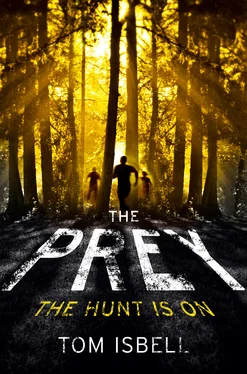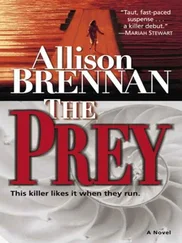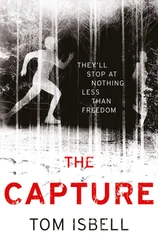There’s something else there, too. A small, gold locket, attached to a thin, tarnished chain. As soon as Hope’s eyes fall on it, she has a distant memory of it dangling from her mother’s neck. And when she undoes the clasp and opens it, she knows what she will see before she sees it.
Two miniature oval photographs. One of her father, one of her mother. From younger days. How innocent they look. And happy. Now encased in a locket’s tomb, facing each other for all eternity. No wonder he carried it with him all these years.
She slips it into her pocket.
The process of dragging rocks is tedious, and she carefully places them atop her father’s body as though—even in death—he can feel the weight. Faith weeps steadily by the cave’s entrance. Hope’s eyes are as dry as sand. There is no time for tears. Her father taught her that.
Live today, tears tomorrow.
Hope has crossed her father’s hands atop his chest when she notices the curled, clenched fingers of his right hand. They are stiff with death and it’s no small struggle to straighten them. More surprising than the effort itself is what she discovers within his gnarled grip.
A small, crumpled slip of paper.
Hope tugs the paper free from her father’s hand. She sees one word written there, scrawled in charcoal.
Separate.
Hope shakes her head and crumples the note back up.
When she finishes the burial mound, both girls gather by the body. They have never been to a funeral before. Or a wedding. Nothing.
In lieu of a prayer, Faith says, “I heard what he told you. About separating.”
Hope tries to hide her surprise. “He was delirious,” she says. “Out of his head with fever. I’m not thinking of it if that’s what you’re asking.”
“I’m not.” Their eyes run up and down the grave of rocks. “But I think we should.”
“You think we should ? Separate?”
Faith nods. “If he was right about that twins stuff, it sounds like you’d”—she pauses to correct herself—“ we’d have a better chance on our own.”
“Faith, you wouldn’t last a day out there. No offense.”
Faith bristles. “I’m not as helpless as you think.”
“Uh, yes you are.”
Hope can see she’s hurt her feelings. If Hope isn’t slapping her sister with her hand, she’s doing so with her words.
“I’m going to get some food,” she says, impatient and angry all at once.
Faith doesn’t respond.
At the edge of a swampy bog Hope spears half a dozen plump bullfrogs. She brings the meat back to the cave late that afternoon and it cooks up good. They wolf it down without a word. After dinner, they settle on their makeshift beds, still not having spoken since the morning. Hope falls into a deep sleep, dreaming of everything and nothing.
When morning sunlight wakes her, there’s no sign of her sister anywhere.
“Faith,” she calls, first inside the cave, then out. The only answer she gets is birdsong. “Faith!”
Still nothing.
No extra footprints pattern the ground. No sign of wild animals. But Faith’s few possessions are gone. No canteen, no backpack, no shawl.
Hope curses not so silently to herself. She isn’t sure who she is angriest at: Faith, for thinking she can make it on her own, or herself, for basically daring her to go.
Or her father, for bringing up the notion of separating in the first place.
Although Faith’s body is light and her footprints barely dent the ground, Hope will have no problem trailing the flattened grass, the snapped twigs. After ten years of tracking prey at her father’s side, she knows the signs.
Hope finds the trail and determines which way Faith has gone … then promptly goes the other direction. To hell with her sister.
5. Chapter 5 Chapter 6 Chapter 7 Chapter 8 Chapter 9 Chapter 10 Chapter 11 Chapter 12 Chapter 13 Chapter 14 Chapter 15 Chapter 16 Chapter 17 Chapter 18 Chapter 19 Part Two: Escape Chapter 20 Chapter 21 Chapter 22 Chapter 23 Chapter 24 Chapter 25 Chapter 26 Chapter 27 Chapter 28 Chapter 29 Chapter 30 Chapter 31 Chapter 32 Chapter 33 Chapter 34 Chapter 35 Chapter 36 Chapter 37 Chapter 38 Chapter 39 Chapter 40 Chapter 41 Chapter 42 Part Three: Prey Chapter 43 Chapter 44 Chapter 45 Chapter 46 Chapter 47 Chapter 48 Chapter 49 Chapter 50 Chapter 51 Chapter 52 Chapter 53 Acknowledgments About the Author About the Publisher
I EXPLAINED THE BASICS: chores in the morning, classes in the afternoon, CC—Camp Cleanup—on the weekends. The boy in the black T-shirt didn’t ask a single question, but I got the feeling nothing escaped his attention.
When we exited the mess hall, I realized I hadn’t introduced myself. “I’m Book,” I said, trying to sound tougher than the name. “Who’re you?”
“L-2084,” he murmured.
Sometime after Omega the government made the decision to label all the boys John. Our last names were what distinguished us: a series of numbers matched with a letter for our camp—L for Camp Liberty, V for Camp Victory, etc. Our “identities” were tattooed on our right arms.
Apparently, all girls were called Jane, but that was only a rumor. We’d never actually seen any for ourselves.
“Not your official name, your nickname,” I said. “Like I’m Book because I read a lot, and there’s Red because he has a red splotch on his face and Twitch because he does and Flush because he doesn’t.”
The boy in the black T-shirt said nothing.
“What’d your friends call you back where you came from?” Then, in an awkward attempt to follow the colonel’s orders, I asked, “Where’d you say that was again?”
“I didn’t,” he growled.
We toured the rest of the camp in silence. Finally, I asked, “What’d you mean in the No Water? About getting out of here?”
“Just what I said,” he answered tersely. As if it didn’t need explaining.
“Why? This is a decent camp. And our grads do really well.”
A small sound escaped Black T-Shirt’s mouth. A grunt? A scoff? But when I turned to look at him, I didn’t get any reaction at all.
Neither of us spoke as we made our way across camp. As we passed two LTs, one of them knocked into me and I nearly lost my balance. The LT shouted out, “Who’s your boyfriend, Book Worm ?”
They laughed. So much for making a good impression on the new guy.
Beneath the arched ceiling of the Quonset hut, a hundred-some bunk beds stretched out in long rows. At the base of each bed was a wooden trunk, storing all our worldly possessions. In my case: books. Dozens of them.
Black T-Shirt stopped, pointing to the very last bunk in the room. “This one taken?” He clambered effortlessly to the top and lay on his back like some Egyptian sarcophagus.
Apparently, the tour was over.
“You don’t get it, do you?” he said.
His words startled me. “Get what?”
“This.” He gestured vaguely to the barracks, the camp itself.
“I get as much as I need to get,” I said, suddenly defensive.
He shook his head. “You have no idea.”
I turned on my heels and stormed out, angry I had ever bothered to help save L-2084’s life in the first place.
I walked to the southwestern edge of camp. Below me lay endless desert; above me a jagged range of mountains. The cemetery itself was soundless. I made my way through a labyrinth of sun-bleached crosses until I found the marker I was searching for.
L-175. Known to us as K2.
A series of eerie images danced through my brain like fireflies.
Giant trees crashing to earth. Startled shouts. A final, haunted expression.
Pounding on a door. Red on white. Blackness darkening the edges of my periphery.
Читать дальше












